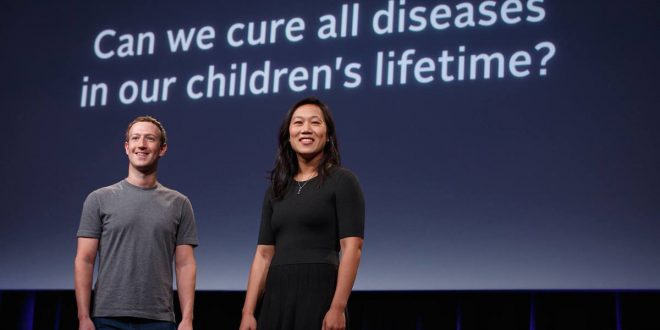Toronto-based Meta, which uses machine learning to organize information in scientific papers, has been acquired by Mark Zucerkberg and Priscilla Chan’s $45 billion philanthropy organization.
The pair announced in September 2016 it would invest $3 billion of their personal fortune into the initiative, to be spent on organisations and companies conducting medical research over the next ten years, ultimately passing on 99 per cent of their own money earned through Facebook. An initial $600 million was earmarked for a Biohub in San Francisco, which is now focusing on Cell Atlas, a project to map the cells controlling the body’s organs, and the Infectious Disease initiative, which will focus on the development of new tests and vaccines for diseases including HIV, Ebola and Zika.
Scientific search engine Meta is the first company to be bought outright by the Initiative. Anyone who wants to use the tool is being invited to “reserve a free account” while shareholders and courts approve the acquisition.
CEO of the Toronto-based company, Sam Molyneux, explains in a blogpost how he and his sister Amy, along with a team of engineers and scientists, spent six years working out “how to use artificial intelligence to analyse new scientific knowledge as it’s published – along with the majority of what has been written, throughout modern history.”
Meta’s AI analyses millions of papers, seeking out patterns and drawing insights faster than a human researcher. It helps scientists make connections in the data, find collaborators working on similar material, and helps funding bodies find investment opportunities. It was created to help scientists find relevant information faster – ranking and prioritising the data it has scoured and sourced, working like an expert Google but with a human-like eye for detail and importance – but also to make the rapidly increasing number of scientific papers published each year manageable and useful. According to Molyneux, every day more than 4,000 papers on biomedicine alone are published.
“Using current tools, most will not be read by other scientists who can learn from them. Scientists lack the means to make sense of the vast amount of research being produced around the world. To speed up progress, researchers need to be able to learn from each other’s insights in real time.” Meta is already used by 1,200 institutes globally, says Molyneux, and he believes the AI will be able to make its own scientific discoveries as time progresses.
“In partnership with SRI International (the creators of Siri), we commercialised an AI technology that can read millions of papers to uncover emerging discoveries years ahead of time. We created neural network systems that look at hundreds of signals within new papers, as they are published, to project their future impact with striking accuracy.”
Under the Chan-Zuckerberg Initiative, Meta will become a “single, powerful tool that is available to everyone”.
The first step, post-acquisition, will be for Meta to open up to developers so it can be integrated on other platforms, prioritising the sectors and people “who need them most”.
“We will be working to make Meta even more powerful and useful for the entire scientific community, and are committed to offering these tools and features for free to all researchers,” Cori Bargmann, the Chan Zuckerberg Initiative’s president of science, and CTO Brian Pinkerton said in a Facebook post.
“Meta will help scientists learn from others’ discoveries in real time, find key papers that may have gone unnoticed, or even predict where their field is headed.
“The potential for this kind of platform is virtually limitless: a researcher could use Meta to help identify emerging techniques for understanding coronary artery disease; a graduate student could see that two different diseases activate the same immune defence pathway; and clinicians could find scientists working on the most promising Zika treatments sooner. In the long run, it could be extended to other areas of knowledge: for example, it could help educators stay up to date on developmental science to better understand how children learn.”
Agencies/Canadajournal
 Canada Journal – News of the World Articles and videos to bring you the biggest Canadian news stories from across the country every day
Canada Journal – News of the World Articles and videos to bring you the biggest Canadian news stories from across the country every day



